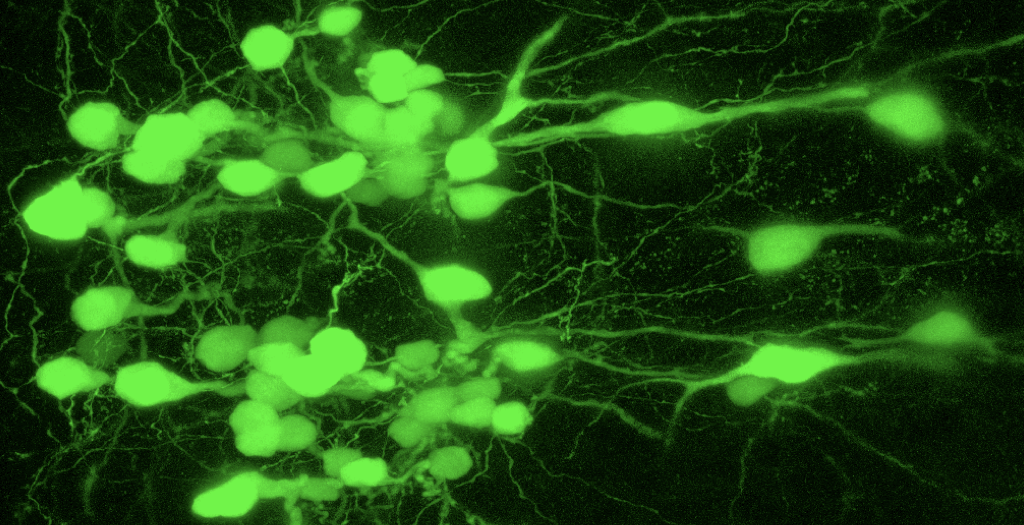
The subject area "Computational Neuroscience" deals with mathematical modelling of the physiology and pathology of neuronal systems and their experimental validation. Knowledge of the basic functioning of ion channels is taught, as well as an understanding of neuronal information processing.
The research group deals with the underlying principles of brain processes of perception and motor action from the neuronal to the behavioural level as well as their mathematical modelling.
Currently our research in third-party funded projects:
- Navigation behaviour and perception of space: experimentally using behavioural experiments and virtual reality, and theoretically based on mathematical Bayesian models
- Time perception: experimentally using electroencephalography (EEG) and computer-based behavioural experiments.
- Modelling the control of slow eye tracking movements with data from our collaboration partner MIT Lincoln Lab and using our own eye tracker equipment
Further projects are investigating:
- how our perceptual system processes uncertainties in sensory input (together with Université Paris-Saclay, Faculty of Sports Sciences).
- how the stabilisation of eye movements is optimised by the central nervous system (together with Ludwig-Maximilians-Universität Munich, Faculty for Biology).
- why patients, e.g. after a COVID disease, complain of shortness of breath although physiologically no deficits can be detected (together with the Klinikum rechts der Isar, Technische Universität München, Clinic for Psychosomatic Medicine).
